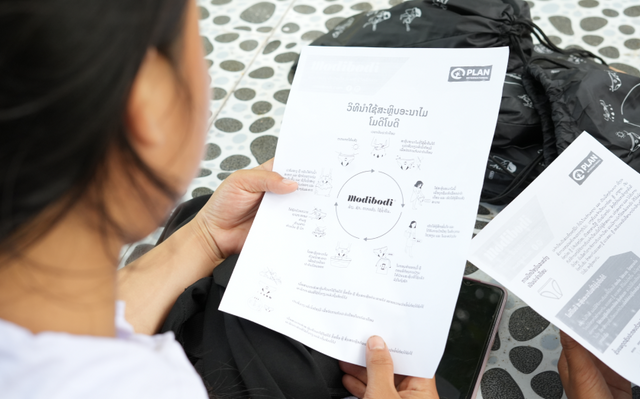How to manage your diet for PCOS
Polycystic ovary syndrome, commonly known as PCOS, is a complex hormonal condition that affects 13% of women globally during the reproductive years. PCOS can cause multiple ovarian cysts and other symptoms like excess body hair, irregular periods, acne and inflammation. The main features of PCOS include abnormalities in the activity of androgen and insulin hormones.Making lifestyle changes may help manage PCOS symptoms and reduce your risk of developing other health issues. PCOS nutritionist Lora Attia explains how to tweak your diet for PCOS management so that you feel healthier and happier in the short and long term.
Why a diet for PCOS is so important ?
Lora says that recent updates to the International Evidence-based Guideline for the assessment and management of PCOS highlight the key role a strategic diet for PCOS plays in keeping your symptoms under control.“Insulin resistance is at the heart of PCOS, which worsens a lot of the metabolic, psychological and reproductive symptoms that a person will have because of hormonal imbalance,” she explains. “Having insulin resistance, elevated blood sugar levels or high lipids like cholesterol can raise your risk of illnesses like cardiovascular disease and gestational diabetes in the future.”
“So if we can improve insulin sensitivity through diet, we can improve many common PCOS symptoms, lower the risk of chronic disease and optimise fertility hormones.”
In line with the latest research, the guidelines for PCOS treatment strongly recommend focusing on diet and lifestyle changes. “Tailoring dietary changes to food preferences, allowing for a flexible, individual and co-developed approach to achieving nutritional goals and avoiding restrictive and nutritionally unbalanced diets, are important.” says Lora.
Top foods to avoid with PCOS
There’s no one list of foods to avoid with PCOS. Everyone’s body is different, and diet is all about balance.“The condition manifests differently in each person, so nutritional recommendations should be tailored to the individual,” Lora says.
That said, Lora suggests a mediterranean style dietary pattern may be helpful. This means limiting refined carbs, processed sugary foods and foods with little nutritional value.
Try limiting:
- Alcohol
- Processed meats like hot dogs, salami and ham
- Sugary snacks and desserts
- Sugary drinks like soft drinks
- High amounts of trans fatty acid often found in fast and fried foods, baked goods, and animal fats.
- Potato chips and fried chicken
The ultimate PCOS food list
Creating a diet for PCOS isn’t just about knowing what to avoid. In fact, focusing on cutting foods from your diet can make you more likely to overeat, especially since people with PCOS are more likely to have disordered eating habits and a poor relationship with food.“I like to try and focus on what you can eat and help women achieve a well balanced diet.” Lora says.
Like foods that can help with PMS, PCOS-friendly foods tend to be high in fibre and nutrients, with properties that help manage blood sugar balance.
A beneficial PCOS food list usually includes:
- Complex carbs, including brown rice, wholegrain bread and wholegrain pasta (these won’t spike blood sugar levels)
- Non-starchy veg, like leafy greens, broccoli, tomatoes and pumpkin
- Whole fruits, like berries (perfect for dessert)
- Plant-based proteins, which can be helpful for fertility and gut health
- Fatty fish rich in omega-3, like salmon and sardines
- Healthy fats, like avocado and extra virgin olive oil
- Nuts and seeds, which can jazz up salads and smoothies
- Herbs and spices, such as cinnamon (full of antioxidants helpful for lowering high androgens responsible for unwanted hair growth and acne and, of course, flavour)
- Soy products and legumes, which contain genistein (good for menstrual regulation and insulin resistance)
- Probiotic foods like kefir, sauerkraut and kimchi, which nourish the gut
- Water and unsweetened coffee or tea for proper hydration
- “Every mealtime, see if you can add 2 or 3 colours on your plate to get that abundance of vitamins, minerals and antioxidants into your diet,” Lora says.
Let’s talk supplements
While eating nutritious foods should be your focus when creating a diet for PCOS, supplements can help your efforts to manage symptoms.Top supplements to consider include:
- Inositol – an insulin sensitiser that can help improve reproductive and metabolic disorders
- Fish oil – which can reduce inflammation and improve insulin resistance, ovulation and fertility
- Vitamin D – vitamin D deficiency is thought to be more common in women with PCOS
- Zinc – which can help with hair loss or unwanted hair growth
- Magnesium – low magnesium is common among people with PCOS
- Chromium - which can help improve the action of insulin








